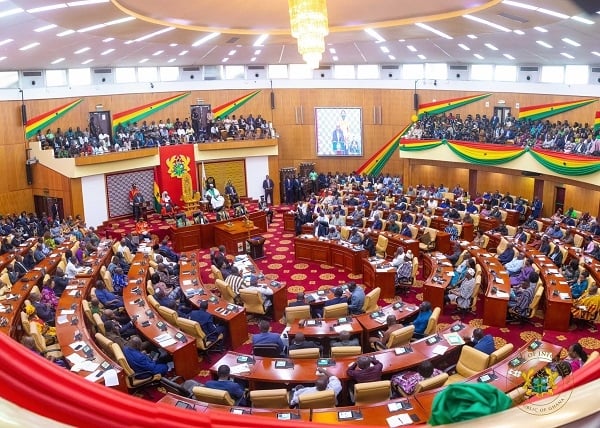The Energy Sector Levy (Amendment) Bill, 2025: A Deep Dive into Ghana’s Energy Crisis and the Proposed Solution
Ghana’s energy sector has been grappling with a persistent financial crisis, characterized by mounting debts, under-recovery of costs, and difficulties in procuring fuel for power generation. This precarious situation has resulted in intermittent power supply disruptions, causing public anxiety and deterring potential investors. The government, recognizing the urgent need to address this escalating problem, has proposed the Energy Sector Levy (Amendment) Bill, 2025, a key component of a broader strategy to stabilize the energy sector and secure a reliable power supply. The bill, passed by Parliament under a certificate of urgency, introduces a GH¢1 increase in the levy on petroleum products, a measure projected to generate an additional GH¢5.7 billion in revenue.
The proposed levy increase is intended to tackle the sector’s ballooning debt, a critical obstacle to its long-term sustainability. Finance Minister, Dr. Cassiel Ato Forson, emphasized the gravity of the situation, stating that a minimum of $3.7 billion is required to clear the energy sector’s existing debts and create a clean slate. Furthermore, he highlighted the urgent need for an additional $1.2 billion in 2025 to procure essential fuel for thermal power generation, warning that without these funds, the power sector faces imminent collapse. This financial injection is crucial not only for meeting immediate operational needs but also for laying the groundwork for long-term stability and growth in the energy sector.
The decision to increase the levy, however, has been met with opposition, particularly from the Minority Caucus in Parliament. They argue that the Majority lacked the necessary quorum to pass the bill and staged a walkout in protest. This political tension underscores the delicate balancing act the government faces between fiscal responsibility and the potential burden on citizens already struggling with a high cost of living. The levy increase, while projected to generate much-needed revenue, will inevitably impact the ex-pump price of diesel, petrol, and other related fuels, adding to the financial pressures on ordinary Ghanaians.
Despite the anticipated price increase at the pump, Dr. Forson assured the public that the recent appreciation of the Ghanaian cedi would offset the added levy, preventing an increase in fuel costs for consumers. This assurance hinges on the continued strength of the cedi, which has recently experienced a period of positive performance. However, the sustainability of this currency trend remains uncertain, and any weakening of the cedi could negate the government’s projected price stability and expose consumers to higher fuel costs.
The Energy Sector Levy (Amendment) Bill, 2025, now awaits further legislative processes, including scrutiny by the Finance Committee. This process will offer an opportunity for detailed examination of the bill’s provisions and their potential impact. Transparency in the management of the generated funds will be crucial to building public trust and ensuring the levy’s effectiveness in addressing the energy sector’s challenges. Accountability and clear demonstration of how the resources are utilized to improve energy sector performance will be vital for gaining public support and mitigating potential political backlash.
The success of this levy increase depends on a confluence of factors, including the sustained strength of the Ghanaian cedi, prudent management of the generated funds, and a demonstrable improvement in the energy sector’s performance. The government faces a significant challenge in navigating these complexities and demonstrating to the public that the levy is a necessary and effective step towards securing a stable and sustainable energy future for Ghana. The long-term viability of this solution will be closely scrutinized by both the public and investors, making transparent and accountable governance of the energy sector paramount.


